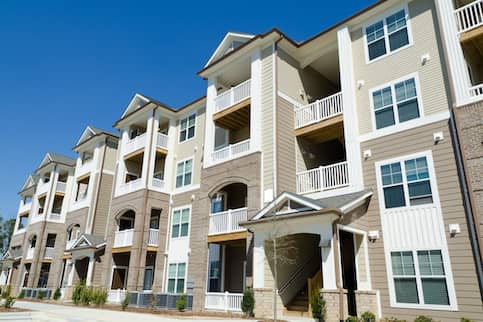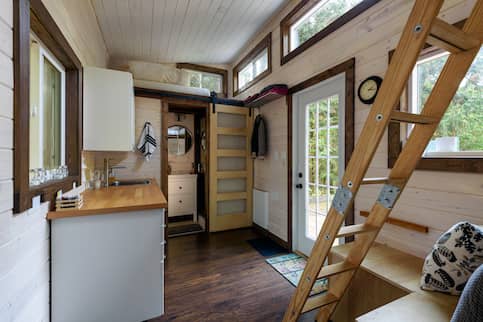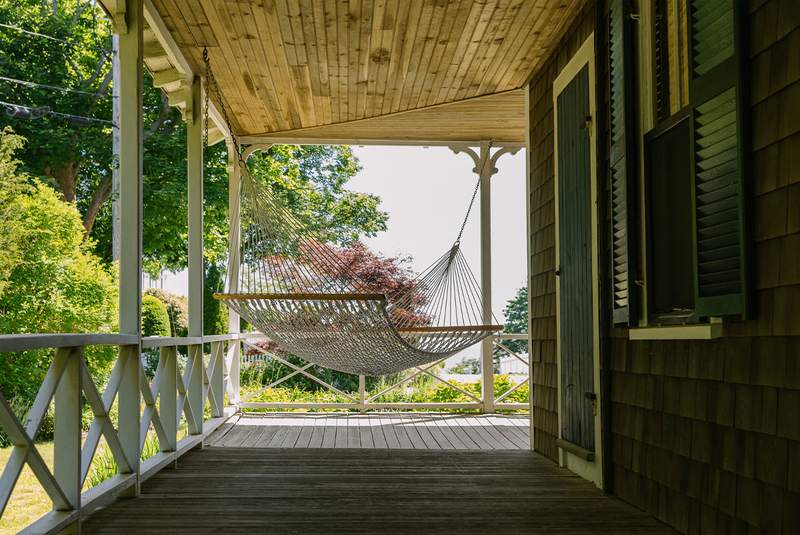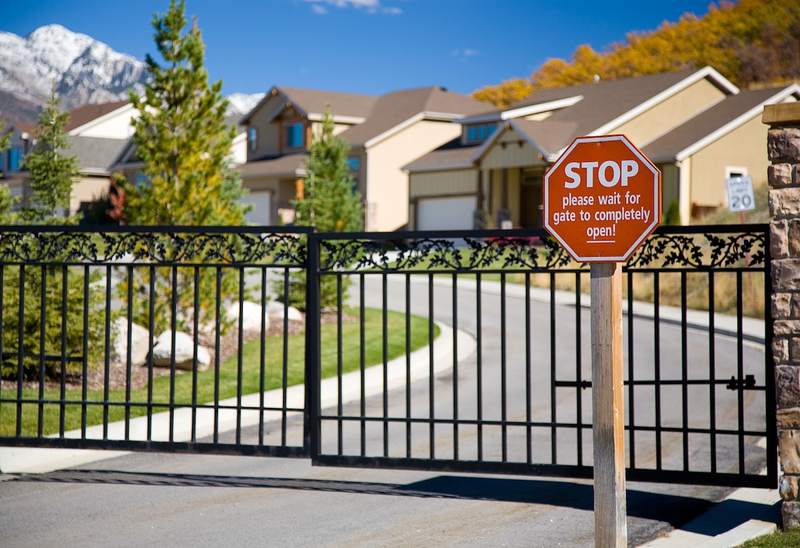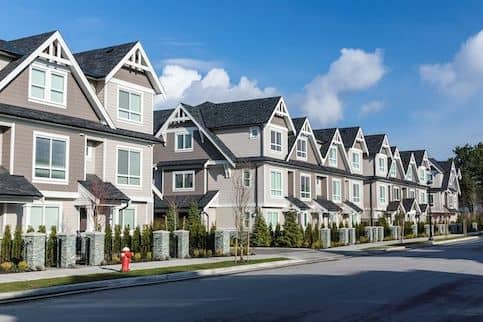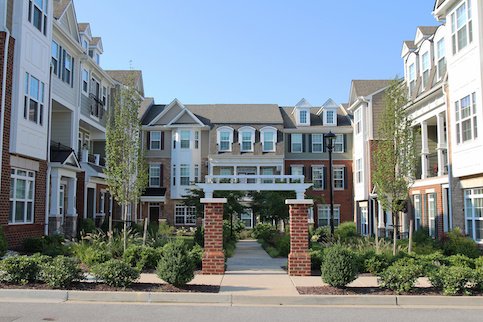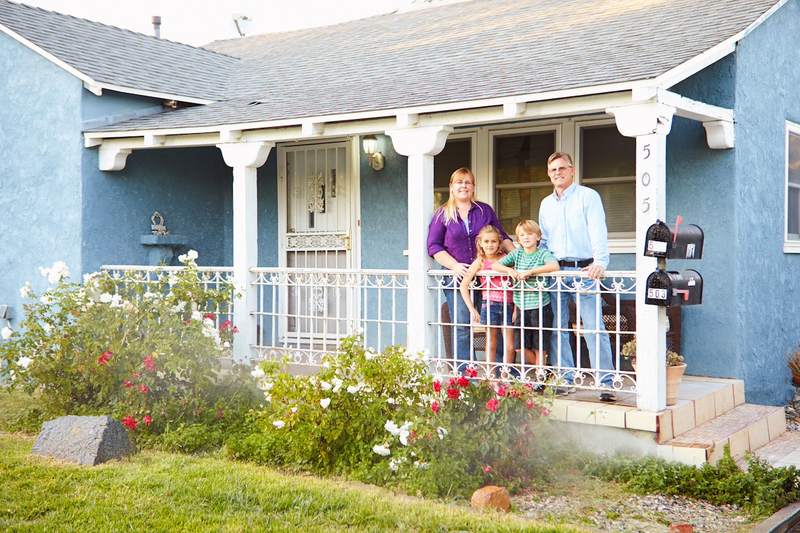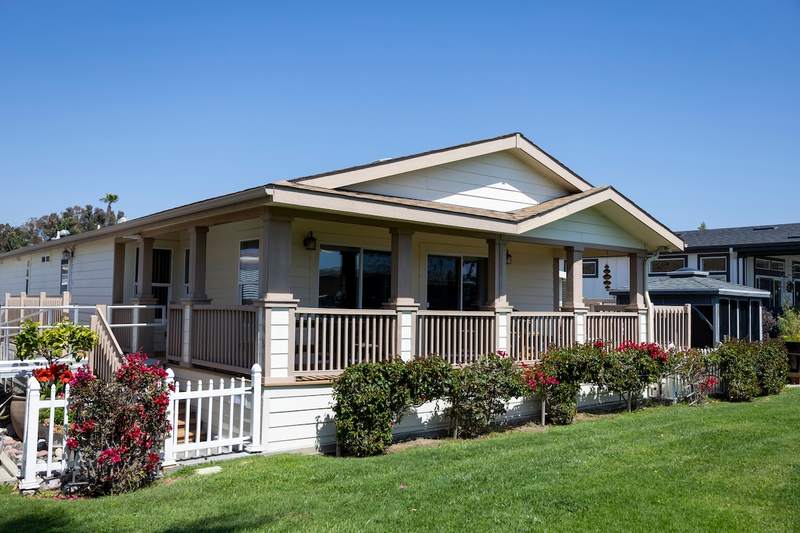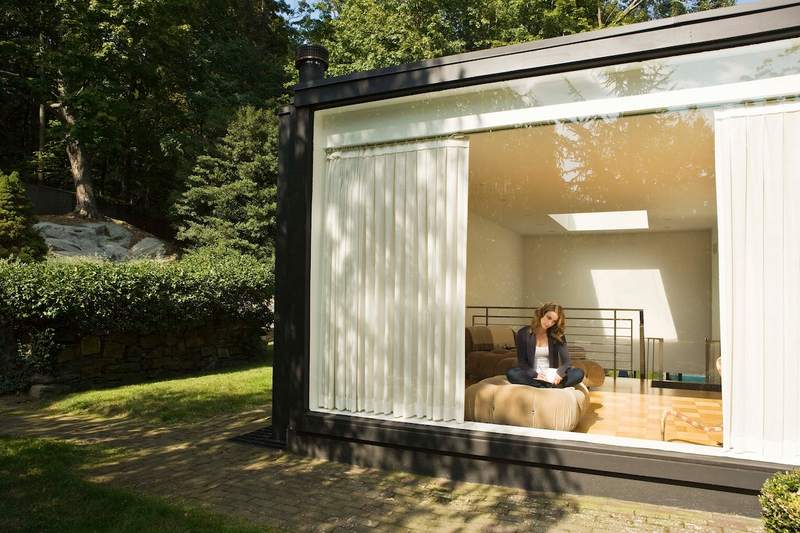Perhaps you want a home of your own, but like the idea of living with multiple people for the support and resource sharing it can provide. An October 2020 study in Public Health Review found that eight out of 10 studies analyzing the impact of co-housing on physical and mental health saw that there was a positive correlation between this living arrangement and improved outcomes.
What is co-housing? You can think of it as an intentional community of people looking to share in a living situation and pool resources. We’ll discuss how this works and what it means for homeowners considering this option.
Co-housing Communities Explained
Co-housing developments are intentional communities of people living in private homes clustered around a common area. Often, these communities include a common house with a large kitchen and dining area where members can share meals. They also typically include shared recreational areas. The term “co-housing” originated at the end of the 1960s, with a group of families in Denmark who were dissatisfied with single-family living. They collectively shared parenting duties and found greater efficiency and community by co-housing.
Co-housing is different from other types of living. It isn’t like a typical neighborhood or subdivision because, while there are private homes, there are some shared spaces and resources among community members. It’s not like a homeowners association (HOA) because residents participate in the planning before they move in and often know each other.
In a co-housing community, all residents are much more involved in the planning and governance of that community from the start and on an ongoing basis.
See What You Qualify For
Buy A Home
Discover mortgage options that fit your unique financial needs.

Refinance
Refinance your mortgage to have more money for what matters.
Tap Into Equity
Use your home’s equity and unlock cash to achieve your goals.
What To Expect From Co-housing
In a co-housing arrangement, there are several differences from a traditional single-family living situation that homeowners should expect when shopping for a home.
While you’ll have your own home, the concept of co-housing is built around community. You may share meals and be required to participate in upkeep of communal spaces. Community members may take turns watching each other’s children. You may also be asked to sit on committees around various aspects of planning for the present and future of the development.
If you’re trying to wrap your head around co-housing, the best way to think about it is as a condo association taken to another level. Except instead of control of the association initially being handed over by the developer, those involved in co-housing are in command of planning from the very earliest stages of development.
Additionally, community members typically know each other going into the process and may meet up several times while the community is being built. So when they’re taking on new members, they may be selective and want to make sure that new members fit in with community values.
The Pros Of Co-housing
If you know what to expect, you may find that co-housing offers many advantages. Here are some things to consider to determine whether this type of housing is right for you.
Environmental Sustainability
Many co-housing communities are founded in part on the premise that shared resources among the group allow for a more environmentally sustainable living style than if everyone was using their own resources. Studies seems to somewhat support this idea. By having things like shared meals, shared gardens and other common spaces, the impact on the environment is lower than if people had to produce these things individually.
A Lower Cost Of Living
Because of the sharing of resources for things like major meals and childcare as well as access to other communal spaces like produce gardens, it’s very likely that you could see a lower cost of living. You don’t have to get everything for yourself if everyone pitches in.
In terms of financing, many of the traditional mortgage types may be available to you including conventional, FHA and VA options. In co-housing, you still own your own home, so there is no need for special financing options.
When looking at mortgage options, it’ll be necessary to determine any restrictions that are placed on the sale of the property. But we’ll have more on that later.
Enhanced Well-Being And Community Connections
The concept of co-housing is based entirely around the idea of social connections creating stronger communities. Because you’re reliant on each other, this can create close relationships. As noted at the beginning of this article, there is some evidence that those in co-housing communities are positively impacted in terms of physical and mental health.
Shared Special Interests
Co-housing has also caught on among groups who have shared interests which inform their community values. For example, like-minded people focused on the sustainability of the planet have created ecovillages. In other instances, communities have been created with the goal of sharing caregiving and tech resources for senior citizens or the disabled.
The Cons Of Co-housing
There are benefits, but also disadvantages to co-housing. Several issues may come up, but the first thing worth talking about is decision-making.
Decision-Making Difficulties
Because all decisions relating to the community are democratically decided, the governance aspect may trouble those who were used to having more autonomy. Moreover, if there is truly a split on certain issues within the community, it could end up creating a rift between members. You could have to find a way to deal with the discord.
Additionally, there’s often the requirement that you participate in certain committees. Because of this, those who are truly “go along to get along” types may be forced to take a position on issues where they ordinarily wouldn’t want to do anything to bother their neighbors.
Social Overwhelm
Co-housing is based on a lot of social gatherings and working very closely with your neighbors. If you’re someone who is relatively introverted and not big on always being with others, this might not be for you.
Unconventional Living Adjustment
Regardless of whether you like the idea of co-housing or not, there’s no doubt that it’s a different lifestyle from what we’re traditionally used to. Some people may fall right into the routine, but for others, it may take a long time to adjust, if they ever do. It’s not for everyone.
Limited Sales Market
Because co-housing is based on having good working and living relationships with your neighbors, communities are established among groups of people who have similar values in many cases.
That’s why it’s important to understand how the community handles home sales. If they require interviews of potential buyers or reserve other rights, getting a mortgage could be difficult.
Mortgage lenders don’t like when the community has a right of first refusal for anyone you might sell the property to. This limits the market and may create an issue if the lender has to foreclose on and sell the property later.
Common Types Of Co-housing To Explore
There are various types of co-housing available in the U.S. to fit a variety of different lifestyles including urban and rural settings, area set up for multigenerational living and even mixed-use settings.
Urban
Co-housing in urban settings might involve the purchase and conversion of a low-rise apartment building or a townhouse. Depending on the goals of the group, they could share resources for childcare or have a rooftop garden. Large common spaces may still be possible, especially indoors.
Rural
Rural co-housing arrangements could allow the occupants enough space to create a self-sustaining farming community. These are often single-family homes because there’s space for that. The houses maybe in one section so that the rest of the area can be used for productive agriculture or other community pursuits.
Multigenerational
Many co-housing communities are multigenerational. Perhaps families or friends could all move into a community together and be able to check in on and care for elders so that everyone can age in place.
Mixed Use
Members of co-housing communities with mixed-use facilities have both residential space as well as business tenants. The business owners may be members of the co-housing establishment, or they may have already had existing businesses where the development sprung up.
See What You Qualify For
You can get a real, customizable mortgage solution based on your unique financial situation.
The Bottom Line: Co-housing Communities Offer More Connection, But They’re Not For Everyone
Co-housing enables a group of like-minded individuals to come together and plan their community from the ground up. Shared resources also mean that they limit their environmental impact and lower the cost of living for members. The concept is based on shared social connection at all times.
It’s worth noting that the idea of so much togetherness could be overwhelming for some. If you like the idea of communal spaces without constantly having to think about self-governance or social gatherings, you might consider a condo or co-op. You have your own space and there’s not an expectation of gathering or sharing household duties. Ultimately, you need to choose the living situation that makes the most sense for you.

Kevin Graham
Kevin Graham is a Senior Writer for Rocket Companies. He specializes in economics, mortgage qualification and personal finance topics. As someone with cerebral palsy spastic quadriplegia that requires the use of a wheelchair, he also takes on articles around modifying your home for physical challenges and smart home tech. Kevin has a bachelor's degree in journalism from Oakland University.
